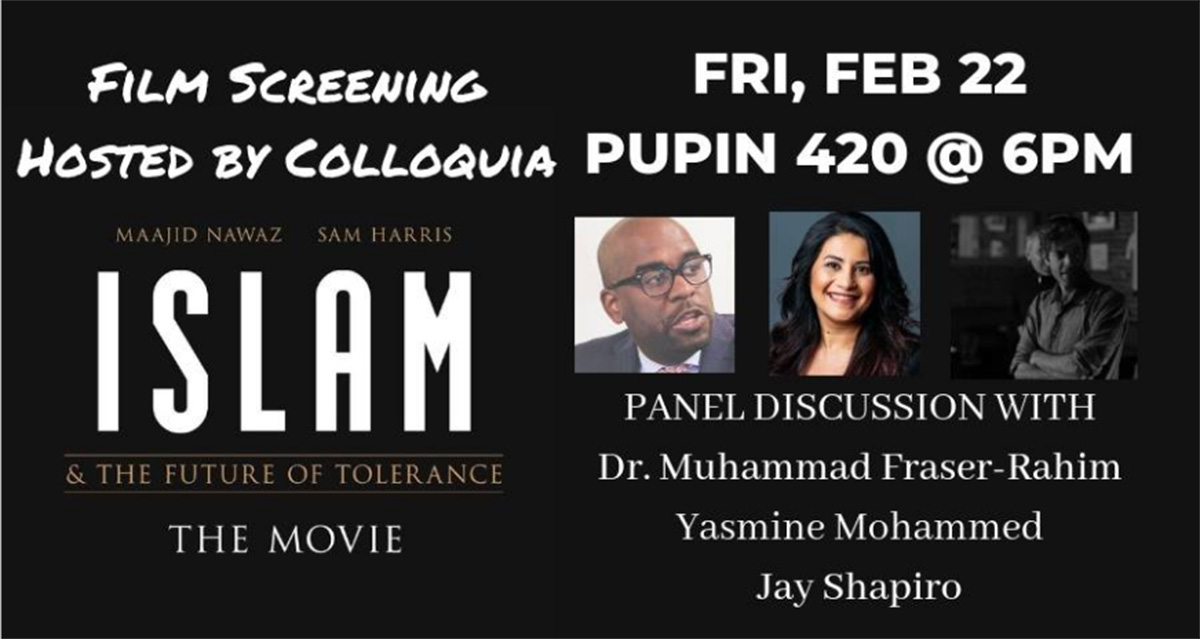Film Screening at Columbia University: Islam and the Future of Tolerance

Video Link:
Event Description:
On February 22nd, Columbia Colloquia, with support from CTF, screened Islam and the Future of Tolerance, a documentary based on the book by Sam Harris and Maajid Nawaz.
In the documentary, “Sam and Maajid attempt to explore their real or imagined divides by clearly and rationally dissecting their disagreements. Through the course of their discussions, they tackle troubling passages from the Quran, the importance of the precision of language and terms (such as “Jihadism,” “Islamists,” and “radical,”) and the difficulty in finding helpful and honest responses in a fraught political terrain. Ultimately, this unlikely collaboration sheds light on the many confusions that afflict the public conversation about Islam and emphasizes how the virtues of open dialogue can help foster both understanding and tolerance in an increasingly polarized world.”
The screening was followed by a panel discussion with Yasmine Mohammed, Dr. Muhammad Fraser-Rahim, and film director, Jay Shapiro.
Mohammed is an Arab-Canadian university educator, activist, and writer. She also runs Free Hearts Free Minds, an organization that supports individuals who have left Islam, but are still living in Muslim-majority countries. She offered insight on the ways terrorist recruiters weaponize the narrative of oppression to radicalize vulnerable persons and use religious texts to justify their ideology.
Dr. Fraser-Rahim is the Executive Director for North America for Quilliam International, a London-based think tank focused on counter-extremism. He is an expert on violent extremism issues and a scholar on Africa. Prior to his current role, he served as a Senior Program Officer at the U.S. Institute of Peace, where he led their Horn of Africa program and served as an expert on violent extremism issues globally. He is a third generation Muslim. He provided context of the history of Black Americans who converted to Islam. In today’s public discourse, the visibility of Black American Muslims have been nearly entirely erased, indicating a shift in Black American identity, which has evolved through the generations.
Shapiro moderated the event and opened the discussion up to the audience, clearly stating that the views in the documentary were those of Harris and Nawaz and that he was open to discussing the intentions and impact of the documentary. When asked who the intended audience of the documentary was, Shapiro said that the conversation displayed in the documentary was meant to stimulate dialogue among liberals in the West, rather than muslims in the Middle East.

